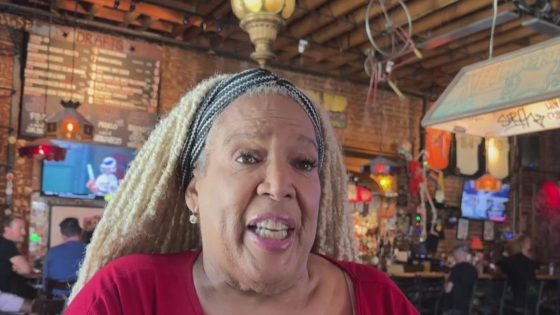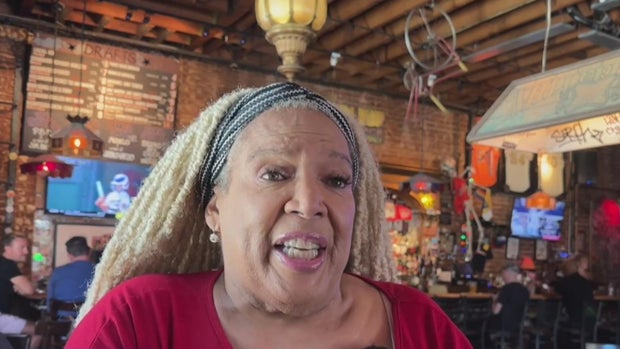An HIV-positive trans woman whose life was transformed by her journey from New York City to San Francisco has dedicated herself to helping her community as the manager of clinical assistants and volunteers at the San Francisco AIDS Foundation.
In a tale of resilience and advocacy, Veronika Fimbres shares how her life changed dramatically when she moved from New York City to San Francisco over 25 years ago.
Today, Veronika is the Manager of Clinical Assistants & Volunteers at the San Francisco AIDS Foundation, where her dedication to her community shines brightly.
“Coming here saved my life,” Veronika told CBS News Bay Area. “When I was in New York City, they told me, ‘Get your things together because you’re getting ready to die.’ That was devastating. Of course, here it is years later, and I’m a long-term survivor of HIV and AIDS, and I’m very thankful.”
CBS
Veronika’s path to her current role was challenging. In 1996, she arrived in San Francisco after losing her brother and partner to AIDS, with little more than a few dollars and a strong sense of determination. She made the city her home and committed herself to help others navigate the same challenges she once faced.
“The city has my heart,” Veronika says. “When Tony Bennett sings that he left his heart in San Francisco, whenever I go away from San Francisco, my heart is still here.”
Her activism began at an early age, inspired by civil rights struggles on TV. At 17, she witnessed the Stonewall Riots in New York City, a moment that left a lasting impact.
“The day Stonewall happened, I was 17. I was walking around barefoot with love beads on and all that stuff,” she recalled “People were running down Christopher Street with blood coming down, streaming down their faces. That was the riots, at Stonewall, and they happened right in front of my face,” she recalled.
At the San Francisco AIDS Foundation, Veronika leads a passionate team of clinical assistants and volunteers, focusing on ensuring that transgender individuals receive the healthcare they deserve. She notes that discrimination, lack of provider knowledge, and limited access to gender-affirming treatments are common obstacles, creating an environment of mistrust and fear that discourages many from seeking necessary medical attention.
“I work with the community that I love, which is my own community, and I’m able to give back to the trans community,” Veronika said.
Kyle Temple, Associate Vice President of Behavioral Health & Community Programs at the SF AIDS Foundation, highlights the importance of Veronika’s work, noting that misgendering, invasive questioning, and outright discrimination often lead to a reluctance to engage with the healthcare system.
“The way that we think about the work that we do around HIV prevention is really more of a holistic approach and a whole person approach,” said Temple. “It’s just not about access to medical care or medical interventions. It’s also engaging folks around their mental health, around their substance health, having them connected with other folks in their community to provide social support.”
Veronika’s role is crucial in this context.
“To have somebody with Veronika’s experience working in this context, it’s hugely important,” Temple added. “In connecting the dots and being able to pass on that knowledge and that wisdom to the next generation of providers.”
In 2023, the foundation delivered over 12,000 HIV tests and enrolled 3,100 people in its PrEP program, achievements made possible by Veronika’s dedicated efforts.
Veronika’s message is clear: hope and support are always within reach. “If you need help, always feel free to reach out for help,” she said. “It its available—mental health help, financial help, all different kinds of help are available.”
Her story is a powerful reminder that together, we can uplift and empower those in need, paving the way for a more inclusive and compassionate future.
Source Agencies




